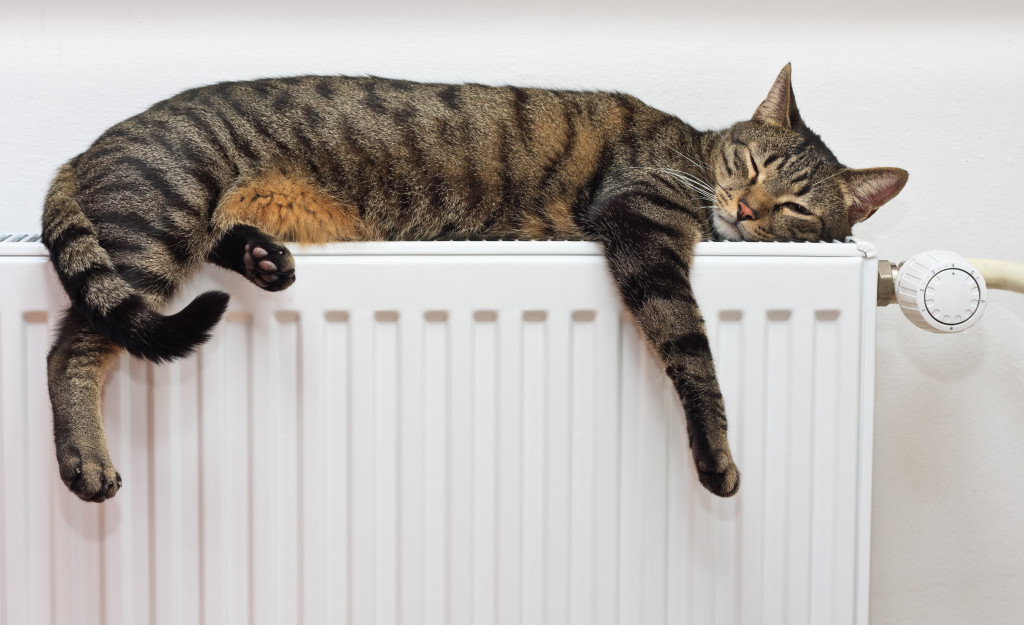Every species in the world have a weakness to a particular virus. However, there is a virus unlike no other in the world, one that exists in almost every species, may it be man, dog, or cat: parvovirus. Parvovirus, or parvo for short, is a deadly virus that exists in our world. It has no cure, and it’s very infectious. It’s also known to be the pet killer.
Cats have a specific strain of parvovirus, and it has many names. One of which is feline infectious enteritis (FIE); another name is the feline panleukopenia virus (FPV) because of its ability to reduce white blood cell count among cats. This virus can’t jump to other species, such as dogs, but it’s undoubtedly dangerous for any cat that gets infected by it. So what is feline parvovirus?
Feline Parvovirus
Willian Jarrett was the one who discovered feline parvovirus (called as feline leukemia virus at the time) in 1964. His discovery led to various improvements in the veterinary world and the eventual vaccination of the virus. However, the virus was found in a group of cats who had lymphosarcoma (cancer common in cats). Jarrett found that FIE was one of the main reasons such cancer existed among these groups of cats.
It was then deemed an infectious and dangerous virus in our world, but further studies have shown that it only existed among felines and could not jump to other species. However, cats’ mortality rates reached up to 90% before a vaccine was discovered.
FIE still exists up to this day, and it’s very rampant in our modern world. Unvaccinated kittens are the most susceptible to the virus, but adult cats can get it as well. So what are the symptoms of FIE?
Symptoms
The virus has an incubation period of four to ten days, in where the infected pet develops severe gastroenteritis. After the incubation period, the feline will then develop severe symptoms such as diarrhea (sometimes bloody) and vomiting. The virus can travel to the cat’s digestive system and cause severe problems in the lining of the intestines.
The virus can also be found in the bone marrow and the lymph nodes of the infected pet. Because the virus replicates quite rapidly, there wouldn’t be enough white blood cells to combat it, which then leads to the death of the feline. The most common symptoms you should look out for are vomiting and diarrhea.
Transmission and Infection
FIE is transmitted through physical contact, but non-direct physical contact can also lead to infection, especially among kittens. Fecal matter is considered to be the prime vector of transmission. However, cats who don’t have symptoms of FIE can carry them. Furthermore, canines who had contact with cats with FIE can also carry them despite being immune to the virus.
The virus can live on surfaces for about two days or so, but ideal living conditions can lead the virus to live for many months. Disinfect your home if you have multiple felines entering it every day and you have unvaccinated kittens running around.
Treating a cat with FIE can be quite challenging because there is no known cure for it. Prevention is better than cure at this point.
Vaccination
The best way to prevent FIE is to get your kittens vaccinated. The mortality rate of unvaccinated kittens is above 90%, while vaccinated kittens have a higher fighting chance when they do get infected. The best time to get them vaccinated was when they reached two months. That’s usually when the immunity of the mother cat washes off from their system, leaving them susceptible to the virus.
Every veterinarian offers a parvo shot in their clinics. Make sure you get them the moment your kittens reach the right age.
Transportation
Because of the resilience of the virus, it can be challenging to transport your kittens from one state to another. You’ll need professional cat transport services to help you out with this. They know various ways to disinfect their transportation cages to ensure no virus can live in them. If your kitten is still unvaccinated, we highly suggest you hire this service.
Keep Unvaccinated Kittens at Home
One out of three cats has FIE in their fecal matter. You don’t want your kittens to encounter them while running about. If your kittens are still unvaccinated, ensure that they are at home and as far away from other cats as possible. It’s your best bet to keep them safe.
Feline parvovirus is a horrifying disease but one that’s pretty much unavoidable. Your cats can avoid such a virus and live a long and healthy life through vaccination and proper care.




